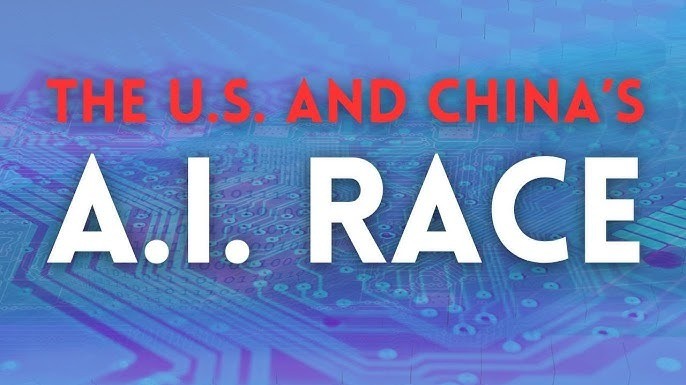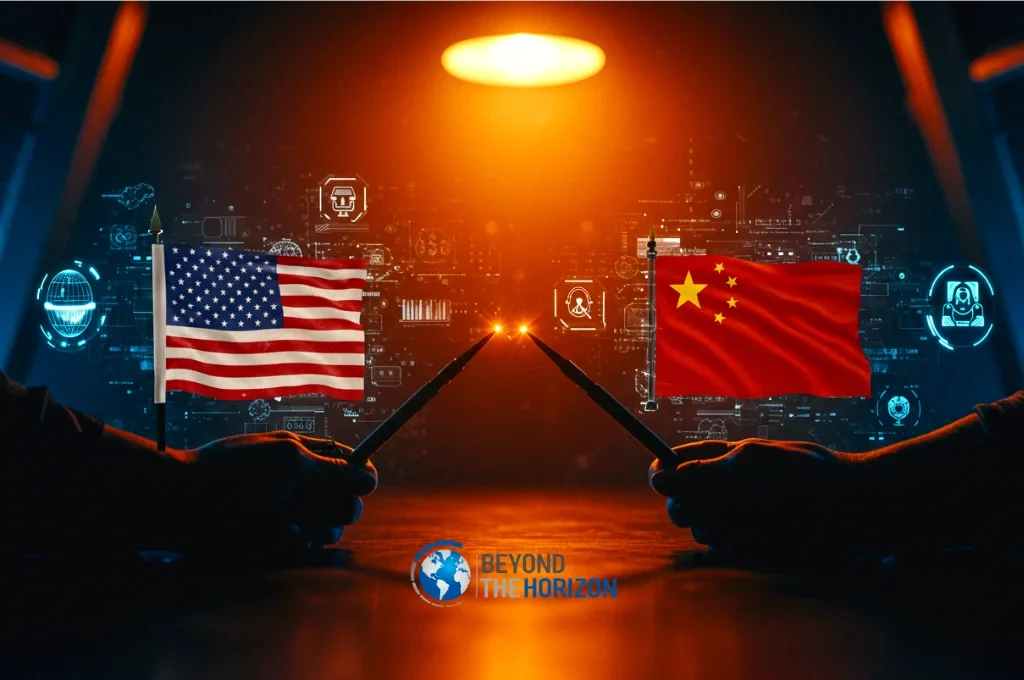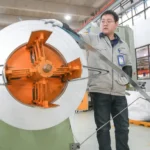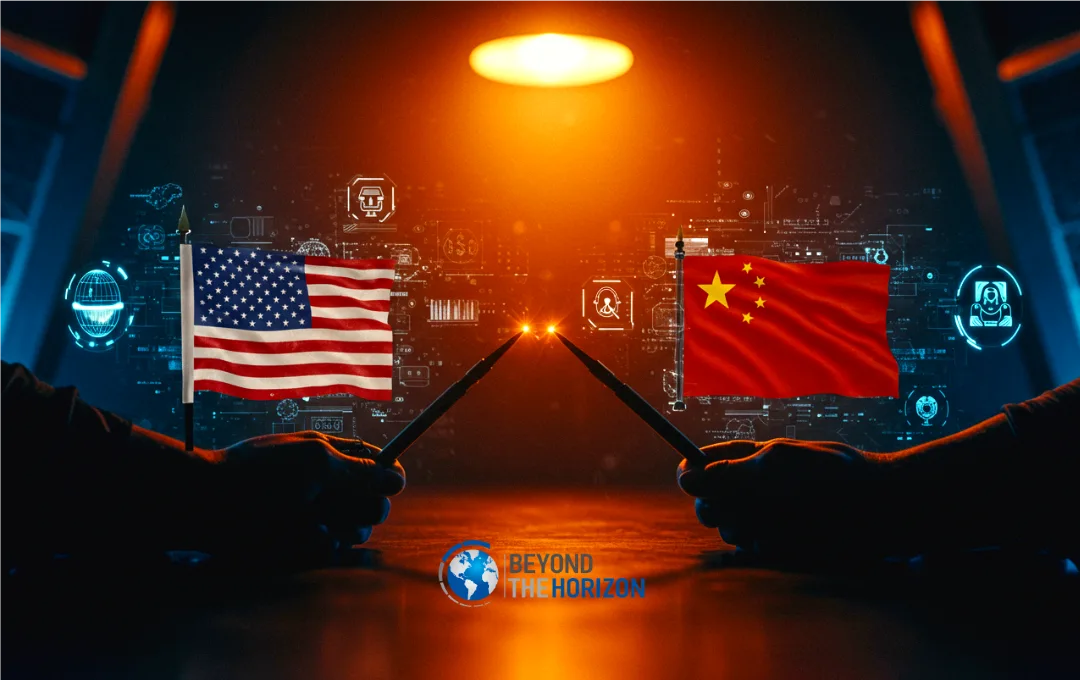Table of Contents
Published: March 24, 2025 | By WorldAffair.org
Artificial intelligence (AI) has rapidly become one of the most transformative forces of the 21st century, reshaping industries, economies, and geopolitics. As the world’s second-largest economy and a technological powerhouse, China is determined to become the global leader in AI by 2030. In 2025, its role in the AI race is more prominent than ever, with the country investing heavily in AI research, development, and applications. This post will delve into China’s AI strategy, its growing influence, and the global implications of its ascent in the AI race.

🌏 China’s AI Ambition: A Path to Global Leadership
In 2017, China unveiled its New Generation Artificial Intelligence Development Plan, outlining the country’s goal of becoming the world leader in AI by 2030. By 2025, China has made significant strides toward this ambitious target, having already become a global AI powerhouse. The country is focusing on several key areas to solidify its position as the dominant player in AI.
Massive Investment in AI Research and Development
China’s government has made AI a strategic priority, pouring vast resources into AI research and development (R&D). In 2025, China is set to invest over $60 billion into AI development, surpassing most other nations in terms of public investment in the sector.
- Government Support: China’s centralized, top-down approach has enabled coordinated development across multiple sectors. Government-backed initiatives have created AI research hubs in cities like Beijing, Shenzhen, and Shanghai, where leading AI firms and research institutions are located.
- Private Sector Innovation: Tech giants such as Baidu, Alibaba, and Tencent are at the forefront of AI advancements, working on AI applications in autonomous vehicles, healthcare, and smart cities. These companies are also leading efforts in the commercialization of AI technologies, allowing China to dominate both the development and application of AI.

Key Areas of Focus in AI Development
- AI in Manufacturing: China has long been the “world’s factory,” and now it’s adding AI-powered automation to its manufacturing sector. The country is using AI to optimize production lines, enhance supply chains, and reduce labor costs. By 2025, China’s manufacturing sector is expected to be the largest adopter of AI-powered automation globally.
- AI for Public Safety: One of the most visible applications of AI in China is in public safety. Facial recognition technology is used extensively across China for surveillance, law enforcement, and even public services. While controversial, this technology is being deployed in smart cities across the country.
- AI in Healthcare: China is using AI to enhance healthcare services, particularly in diagnostics and drug discovery. AI-driven tools are being used to analyze medical images, predict disease patterns, and design personalized treatments. The Chinese government has invested in AI-driven health platforms to extend services to rural and underserved areas.
- AI in Finance: AI is transforming China’s financial sector, with innovations in algorithmic trading, fraud detection, and credit scoring. China’s central bank is exploring the use of central bank digital currencies (CBDCs) powered by AI, aiming to modernize its financial system.

🌐 Global Implications of China’s AI Dominance
China’s growing dominance in the AI space is reshaping the global technology landscape and has far-reaching consequences for international relations and the global economy. Several key implications are emerging as China strengthens its grip on AI.
Geopolitical Tensions and the AI Arms Race
As China advances in AI, geopolitical tensions are rising, particularly with the United States, which has long been the leader in AI innovation. The rivalry between the two nations in the AI sector is often compared to the Cold War arms race, with both countries vying for supremacy in critical technologies.
- AI Regulation: The U.S. has become increasingly concerned about China’s dominance in AI and its potential to use AI for surveillance and censorship. This has led to calls for greater AI regulation and data protection policies in the West.
- Trade Wars and Technology Sanctions: The U.S. has already imposed technology sanctions on Chinese firms like Huawei and SMIC, limiting their access to critical AI technology. These sanctions are expected to increase in the coming years, particularly as China’s AI capabilities continue to expand.
China’s AI Diplomacy and Global Influence
China is also actively exporting its AI technologies to other nations, particularly through its Belt and Road Initiative (BRI). By offering AI-powered infrastructure, surveillance tools, and services to developing countries, China is positioning itself as a key player in global AI governance.
- AI for Development: China’s growing AI influence extends beyond its borders. Through partnerships with countries in Africa and Asia, China is positioning itself as a leader in global AI development, providing AI-powered solutions to enhance public infrastructure and governance in these regions.
- Soft Power Expansion: China’s export of AI technologies is a key part of its broader strategy to enhance its soft power. By offering AI solutions to developing countries, China strengthens diplomatic ties and increases its influence in international affairs.

🔮 The Future of China’s AI Leadership: Opportunities and Challenges
China’s rapid advancements in AI position it to lead the global race in emerging technologies, but challenges remain. While China is ahead in many areas, there are several hurdles that it will need to overcome to maintain its position as a global leader in AI.
Opportunities for China in AI:
- Economic Growth: AI’s integration into sectors like manufacturing, healthcare, and finance is driving China’s economic growth, particularly as the country transitions from traditional industry to high-tech industries.
- Global Standards: China has the opportunity to set global standards in AI, particularly in ethics and regulations, as the world grapples with the social and ethical implications of AI technologies.
Challenges for China in AI:
- International Pushback: The U.S. and European countries are increasingly resistant to China’s AI influence, particularly regarding concerns over privacy, data security, and human rights. This resistance could limit China’s ability to expand its AI influence globally.
- Intellectual Property: Despite significant progress, China still faces challenges in intellectual property (IP) protection in AI, particularly with regard to patent rights and technology sharing. There are also concerns that China may struggle to produce cutting-edge AI hardware, like the semiconductors that are critical for high-performance AI applications.

✍️ Conclusion
China’s role in the global AI race is undeniable in 2025, and its efforts to dominate the field of artificial intelligence will continue to have profound effects on the global economy, international politics, and technology. As China seeks to become the world leader in AI, the international community must confront the emerging challenges and opportunities that come with it. The next decade will be crucial in determining whether China will solidify its position as the global AI leader or if geopolitical, technological, and ethical barriers will slow its ascent.
Author Profile
- Syed Tahir Abbas is a Master's student at Southwest University, Chongqing, specializing in international relations and sustainable development. His research focuses on U.S.-China diplomacy, global geopolitics, and the role of education in shaping international policies. Syed has contributed to academic discussions on political dynamics, economic growth, and sustainable energy, aiming to offer fresh insights into global affairs.
Latest entries
 U.S. Foreign PolicyFebruary 2, 2026AI and Grand Strategy: The Case for Restraint – Navigating the Future of American Power
U.S. Foreign PolicyFebruary 2, 2026AI and Grand Strategy: The Case for Restraint – Navigating the Future of American Power National SecurityJanuary 31, 2026Treating China’s Connected Energy Systems as a National Security Risk
National SecurityJanuary 31, 2026Treating China’s Connected Energy Systems as a National Security Risk Global HealthJanuary 29, 2026The Future of the WHO—and How the United States Can Shape It
Global HealthJanuary 29, 2026The Future of the WHO—and How the United States Can Shape It Global TradeJanuary 22, 2026Trump Cancels Tariffs on European Nations Over Greenland Pursuit?
Global TradeJanuary 22, 2026Trump Cancels Tariffs on European Nations Over Greenland Pursuit?



2 comments
Incredible work..
**mitolyn**
Mitolyn is a carefully developed, plant-based formula created to help support metabolic efficiency and encourage healthy, lasting weight management.